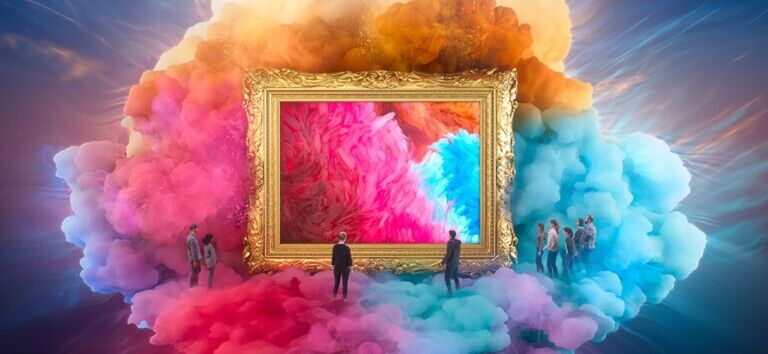Barco, the technology company focusing on innovative visualisation solutions, has shared the results of its worldwide survey to enhance understanding of the evolving museum technology space.
This is informed by responses from more than 300 creative professionals, technical specialists, and senior executives from around 150 organisations. The findings are examined in a three-part blog series and shine light on how museums are navigating visualisation technologies to elevate storytelling, guest engagement, and operational efficiency.
The key findings from this comprehensive piece are presented in a visual infographic, which is available to download here. This resource is ideal for use as a reference for future planning or sharing with stakeholders.
Strategic technology selection
Visualisation has become an essential component of contemporary museum experiences.
The survey found that the visualisation environment is dominated by flat panel displays (at 36.2%) and projectors (at 23.2%), followed by tablets, VR/AR sets, and LED or rear-projection systems.
The technology is usually carefully specified, with exhibition design compatibility (40.4%) and content creator preferences (34.5%) as key deciding factors. The budget available also has a significant role and leads many organisations to choose in-house content creation and cost-effective playback solutions like PCs and USB devices.
Projection and LED video walls are also explored in the report, which found that projection is still a preferred technology for many museums. This provides a cinematic experience, large-scale visuals, and adaptable installation at a competitive price point. 31.8% of respondents stated affordability was the main driver for using projection in recent projects.
While past iterations of laser projections have raised concerns about brightness and ambient light, new generations of this technology make it a reliable option even in mixed-light environments. Barco’s G-series and I600s illustrate this shift, providing high-quality projection in compact, energy-efficient formats.
Long-term ambitions
Looking forward, more than 80% of museum professionals expect to continue using projection, and 46% plan to invest further in projection equipment over the coming three years.
When the respondents were asked how they would spend a hypothetical $250,000 grant, upgrading or acquiring new projectors came out on top. Other popular options included interactive displays, advanced audio systems, and specialised media servers. The desire for 4K content is also growing, with 42% already using it and 50% seeking to adopt it in the next two years.
In the longer term, the museum professionals envision using interactive holograms, AR systems without glasses, and multi-sensory technologies that incorporate touch, smell, and sound.
Barco aims to make immersive experiences accessible to organisations, including those with limited budgets. Its product range balances performance, adaptability, and cost for museums of all sizes.
The G-series and I600 projectors are suitable for both large-scale installations and smaller, more intimate exhibitions, providing laser-based projection with excellent brightness, energy efficiency, and compact form factors. Museums can customise their installations with numerous lens options, including ultra-short throw combinations, to meet their specific space and curatorial requirements.
Last winter, Barco shared details of a project to supply approximately 150 projectors for Le Space Inspire, an immersive exhibition space in Incheon, South Korea. Spanning over 6,600 square meters, the space combines technology, light, sound and sensory stimulation to create an out-of-this-world experience across four distinctive zones, Space Exploration, Portal 1: New Land, Portal 2: New Creature, and Cosmo Station.
